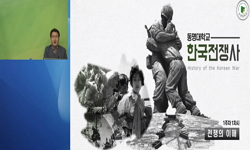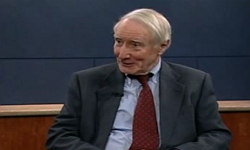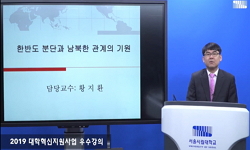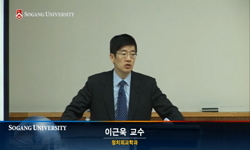이 글은 1953년 한국전쟁 정전 직후부터 1970년대 중반까지 이어진 유엔총회 ‘한국 문제’ 토의가 한반도 통일 문제를 처리하는 국제적 제도로 자리잡은 역사적 기원을 추적한다. 특히 이 연...
http://chineseinput.net/에서 pinyin(병음)방식으로 중국어를 변환할 수 있습니다.
변환된 중국어를 복사하여 사용하시면 됩니다.
- 中文 을 입력하시려면 zhongwen을 입력하시고 space를누르시면됩니다.
- 北京 을 입력하시려면 beijing을 입력하시고 space를 누르시면 됩니다.

유엔의 ‘한국 문제’ 연례 토의의 기원: 1953~1954년 미국・인도의 외교적 경합을 중심으로 = Origins of the UN’s Annual Debate on the ‘Korean Question’: Focusing on the U.S.-India Diplomatic Confrontations in 1953-1954
한글로보기부가정보
국문 초록 (Abstract)
이 글은 1953년 한국전쟁 정전 직후부터 1970년대 중반까지 이어진 유엔총회 ‘한국 문제’ 토의가 한반도 통일 문제를 처리하는 국제적 제도로 자리잡은 역사적 기원을 추적한다. 특히 이 연구는 냉전의 역사적 구성 과정에서 제3세계의 존재와 역할을 중시하는 ‘지구적 냉전사’ 시각에 입각, 정전 이후 장기간에 걸친 유엔의 대한반도 관여가 시작되는데 인도가 핵심적인 역할을 했음을 입증하고자 했다. 1950년대 인도는 신생 독립국의 맹주로서 상당한 외교적 위상을 지녔고, 비동맹·중립 노선을 표방하며 유엔의 한반도 관련 논의에 주요 행위자로 등장했다. 인도는 한국전쟁 시기부터 유엔에서 한반도 관련 논의에 적극 개입했고, 정전 직후에도 제네바 정치회담(1954) 참가를 시도하며 한반도 문제에 적극적인 목소리를 냈다. 제네바 회담 결렬 이후 인도는 정치회담 재개 등 한반도 문제 해결을 위해 유엔의 틀을 벗어나는 ‘적극적’인 해결책을 주장했고, 미국은 이에 대응하기 위해 유엔을 통한 원론적인 해결을 고집했다. 1953~1954년 기간 미국과 인도가 벌인 외교적 경합 속에 유엔의 ‘한국 문제’ 토의는 하나의 제도로 굳어졌다. 이후 1960년대 제3세계의 팽창과 비동맹운동의 확산으로 유엔의 ‘한국 문제’ 논의 구도는 근본적으로 바뀌는데, 1953~1954년 인도가 미국을 상대로 벌인 외교적 도전은 그러한 흐름의 첫 단추를 끼운 사건이었다.
다국어 초록 (Multilingual Abstract)
Examined in this article is the historical origin of the practice of discussing the ‘Korean Question’ at the U.N. General Assembly. Such discussions began as an effort to deal with the issues pertaining to the unification of the Korean peninsula, ...
Examined in this article is the historical origin of the practice of discussing the ‘Korean Question’ at the U.N. General Assembly. Such discussions began as an effort to deal with the issues pertaining to the unification of the Korean peninsula, after the cease of the Korean War in 1953, and continued ever since almost as an international convention through the mid-1970s. This study is also based upon a perspective that strives to ascertain the nature of the global Cold War history, with a specific focus on the role and presence of the Third World, in the historic formation of the Cold War itself. What I would like to prove in this article is the fact that India played a pivotal role in U.N. taking a more active and long-term interventive stance regarding the Korean peninsula situation ever since the Armistice in 1953.
In the 1950s, India was the leader of the newly liberated countries and had a considerable amount of diplomatic influence. It maintained a stance of non- alignment and neutrality, and joined the U.N. discussion of the Korean matter in a prominent fashion. Ever since the Korean War, India actively participated in all debates pertaining to the Korean peninsula held at U.N., and after the Armistice also attempted to join the Geneva Political Conference(1954), voicing its opinion regarding the Korean issue. After the Geneva talks failed India argued for the resuming of talks, and even called for a more aggressive approach to be taken outside the U.N. to resolve the Korean problem. In response, U.S. maintained its position which favored a resolution through the U.N.
With the U.S. and India competing with each other diplomatically in 1953 and 1954, U.N.‘s discussion of the Korean issue was literally institutionalized, and became an established practice. Later in the 1960s, however, when the Third World continued to enlarge while the Non-alignment movement was also expanding, the frame for U.N.’s debate of the Korean situation shifted fundamentally. In retrospect, India’s diplomatic challenge to the U.S. authority in 1953~1954 was indeed the catalyst for such shifting.
동일학술지(권/호) 다른 논문
-
한국군 국방대학 창설과 국가안전보장(National Security) 이론의 형성
- 한국역사연구회
- 김지훈
- 2024
- KCI등재
-
- 한국역사연구회
- 류기현
- 2024
- KCI등재
-
한국전쟁기 국제적십자위원회(ICRC)의 인도주의 구호와 한계
- 한국역사연구회
- 신유진
- 2024
- KCI등재
-
- 한국역사연구회
- 박민수
- 2024
- KCI등재




 KCI
KCI DBpia
DBpia






